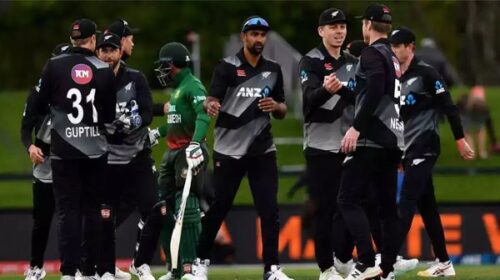Bashir Almamun: Chittagong Customs can’t find 15 lighterage ships that have not paid duty on goods worth crores of rupees imported from abroad. An urgent letter has been issued by the Customs to the Water Transport Cell (WTC), the regulatory body for lighterage vessels, seeking to know the location of the Customs vessels. In response to the letter, the WTC said it knew nothing about the ships.
It is known that ships with a draft of eight and a half meters cannot enter Chittagong port with a length of more than 192 meters. Such ships can carry a maximum of 25 thousand tons of goods. Vessels of more than this capacity are required to discharge their cargo at outer anchorage. Some ships also discharge cargo outside to reduce draft. Offshore currently handles over 900 mother vessels annually. At least 6 crore tons of goods are handled in these ships.
There are about 1500 lighterage ships in Chittagong port for cargo transportation. Some large importers including various industrial establishments transport their goods in their own lighterage vessels. Apart from this several million tonnes of goods imported by common importers are transported through lighterage vessels under the control of WTC. WTC holds daily berthing meetings and allocates lighterage vessels against the demand of importers. Stevedoring companies authorized by port authorities handle the discharge of cargo from mother vessels at offshore anchorages.
Customs formalities including duty payment have to be completed before the goods are shipped from the mother vessel to the lighterage vessel. Goods cannot be unloaded from the mother vessel to the lighterage vessel without payment of duty. However, some influential importers discharge the goods in lighterage vessels without paying the duty under Section 78 of the Customs Act through various tricks.
The condition in this case is that the goods can be unloaded at the wharf only from the lighterage vessel after payment of customs duty. These ships will remain at sea under the control of customs until the duty is paid. It has been alleged that billions of rupees of duty have been evaded by misusing Section 78 of the Customs Act. Chittagong Customs authorities are not able to trace 15 such lighterage vessels. Customs officials wrote to the WTC yesterday to inquire about the ships.
15 Lighterage vessels are MV Crown Mariners-4, MV Crown Mariners-5, MV Crown Mariners-6, MV Crown Mariners-7, MV Sahaba-11, MV Sahaba-12, MV Sahaba-13, MV Sahaba-14, MV Sahaba-15, MV Sahaba-16, MV Princess Maisa Parisa, MV Lamisa-1, MV Mithila Salman-9, MV Nuhurtari and MV Ishrat Ship-2.
Arjin Khatun, Deputy Commissioner of Chittagong Customs, wrote to the Executive Director of WTC on October 31, seeking to know the location of the above vessels. In response to the letter, WTC executive director Mahbub Rashid Khan told the customs authorities today that they do not have any information about the 15 ships.
According to WTC, they allot the lighterage vessels only after seeing all the documents of the lighter vessels through the daily berthing meeting in the presence of the representative of the importer, the representative of the lighter vessel, all kinds of customs documents including duty, excise duty, service tax and supplementary duty, VAT and payment of port dues.
WTC monitors whether the post-allocation lighter vessel is loading the goods serially from the mother vessel, whether there are any problems or staying at any place during the journey and whether the goods are discharged serially at the unloading point. Apart from this, this organization also monitors whether stolen goods are loaded on lighter ships through surveyors.
According to the letter, all activities from loading of imported goods on lighterage vessels to acknowledgment of receipt by the importer are covered under this monitoring. But some factory owners and importers, instead of allocating vessels from the WTC’s serial system, take their own lighter vessel charter contracts and clear the goods.
It is said in the letter that such activities are done for the purpose of revenue evasion. This is creating chaos and discontent in the shipping sector. The government is also losing revenue in various ways. Some shipping agents and stevedoring companies are involved in this process.
In response to the customs letter, the WTC said that the vessels mentioned in the letter have been transporting goods outside the company’s serials for a long time under charter agreements with various importers and factories. WTC has no information about the location and activities of these ships.
A top official of the WTC told this reporter that if the ships were operating within the conventional rules, there would have been no chance for the ships to be lost like this.



















